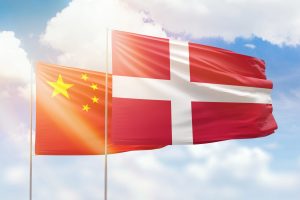“Something is rotten in the state of Denmark,” Shakespeare famously wrote in his tragedy “Hamlet.” Today, the foundation underneath Denmark’s official One China policy has eroded so far that it is virtually indistinguishable from Beijing’s One China principle. This comes against the backdrop of the Chinese government’s growing success in pressuring countries to adopt its stance on Taiwan. While most Western states have resisted, Denmark’s trajectory offers a warning sign of how Taiwan could be losing even its longstanding European supporters.
Chinese government officials have long advanced the claim that “the One China principle is a universally recognized norm in international relations.” The truth is more complicated. Nearly all United Nations member states – 182 out of 193 – today recognize the People’s Republic of China as the sole, legal representative of China in international society and therefore have no official relations with Taiwan. These two provisions form the basis of the One China policy, itself derived from U.N. Resolution 2758 in 1971, when China’s seat in the U.N. was transferred from the Republic of China (ROC, Taiwan) to the People’s Republic of China (PRC).
Beijing’s One China principle, however, goes further, asserting that Taiwan is an inseparable part of the PRC. This is a position that “only” 119 U.N. member states officially adhere to, although that number has been growing steadily in the past few years. A significant bloc of at least 40 mostly Western countries maintain an agnostic approach, leaving aside the question of Taiwan’s international status while developing their informal economic, cultural, and other types of relations with Taiwan.
But cracks are now appearing in Taiwan’s traditional stronghold of like-minded partners, and Denmark is a case in point.
Formally, the Danish government still regularly confirms its One China policy, as when foreign minister Lars Løkke Rasmussen visited Beijing in May to mark 75 years of diplomatic ties. Yet in practice, Denmark has edged closer to the One China principle.
One telling example appears on the Danish Ministry of Foreign Affairs’ webpage, where the “Trade Council of Denmark in Taipei” is now listed as one of Denmark’s four missions in China (alongside the embassy in Beijing and the consulates in Guangzhou and Shanghai). No other EU country with a trade council in Taipei frames it this way; they keep their China and Taiwan representations separate.
More politically controversial has been a recent change in a decades-old procedure for how the Danish authorities register Taiwanese citizens. Last year, the Danish newspaper Berlingske revealed a new administrative practice of categorizing Taiwanese citizens as Chinese nationals in their residency permits and other official documents. Leaving aside here the oddly inconsistent administration of this new practice, the official rationale for implementing the shift is worth highlighting.
In January, in an interpellation debate in the foreign policy committee, Rasmussen repeatedly argued that since Denmark only officially recognizes the PRC, not Taiwan, Danish authorities can no longer use “Taiwan” to list citizenship or nationality in official documents. Never mind that this has been standard procedure since 1978, or that other Western countries maintain similarly pragmatic solutions. In May, in yet another interpellation debate, the minister of immigration confirmed that Denmark’s One China policy now requires the Danish authorities to register Taiwanese citizens as Chinese nationals.
What triggered the reinterpretation remains unclear, and both ministers have rejected suspicions of Chinese interference. Such worries have frequently resurfaced following the public outcry over a constitutional breach in 2012, when Danish police authorities prevented peaceful pro-Tibetan protesters from being visible during then-Chinese President Hu Jintao’s state visit.
Denmark’s far narrower reinterpretation of its One China policy matters for several reasons. First, it blurs the line between the One China policy and principle and thereby lends credence to Beijing’s claim that its position is universally accepted. Second, the new Danish administration practice sets a precedent that the Chinese government will likely exploit to increase its pressure on other EU states to follow suit. While Norway long ago introduced a similar registration practice for Taiwanese citizens, EU member states have so far stemmed the tide in this regard.
Although European countries rarely speak as one on the Taiwan question, they have diligently maintained a longstanding ambiguity on Taiwan’s international status. But if even like-minded European partners like Denmark begin adopting Beijing’s terminology, Taiwan may ultimately face a truly united international chorus – one that echoes China’s line.





























